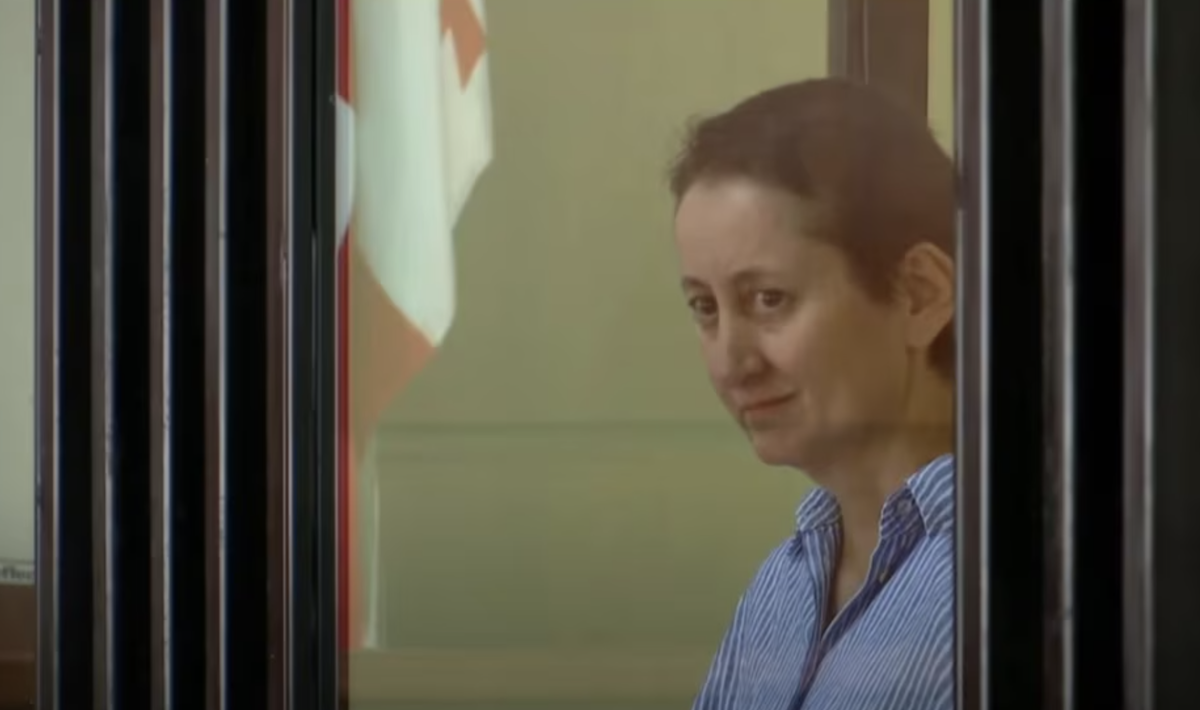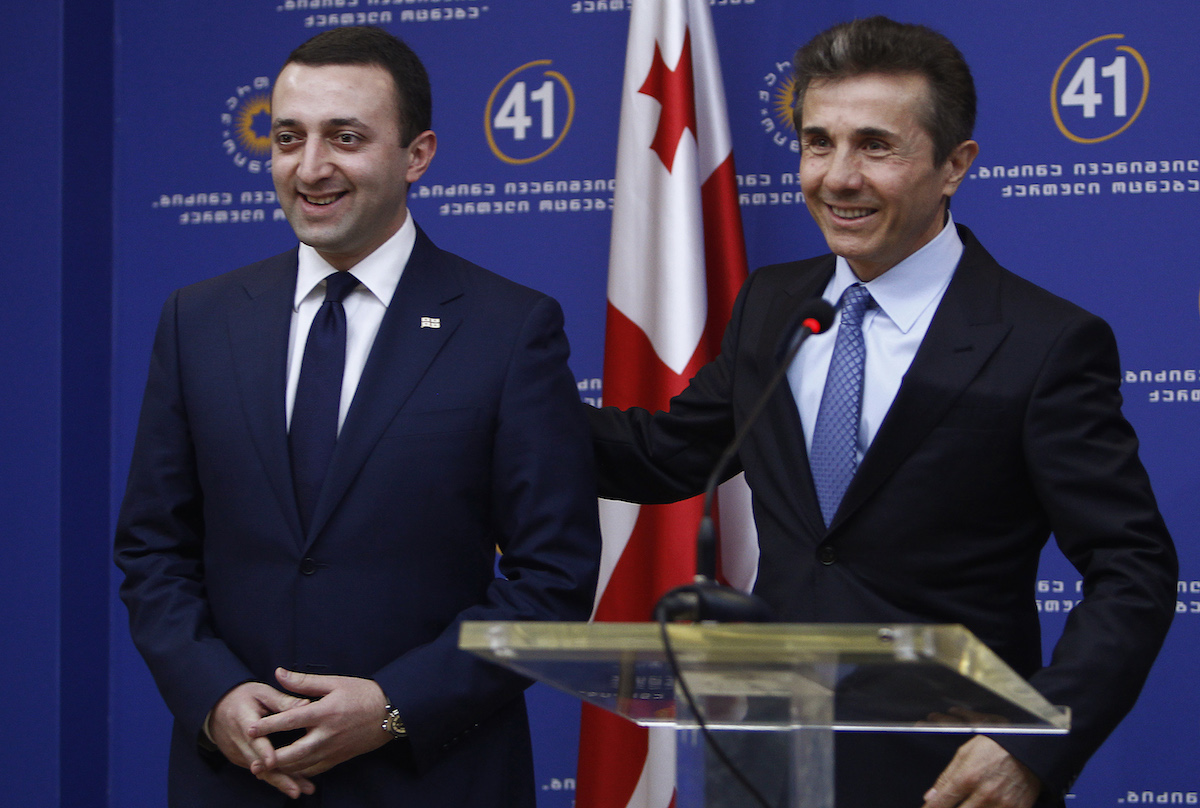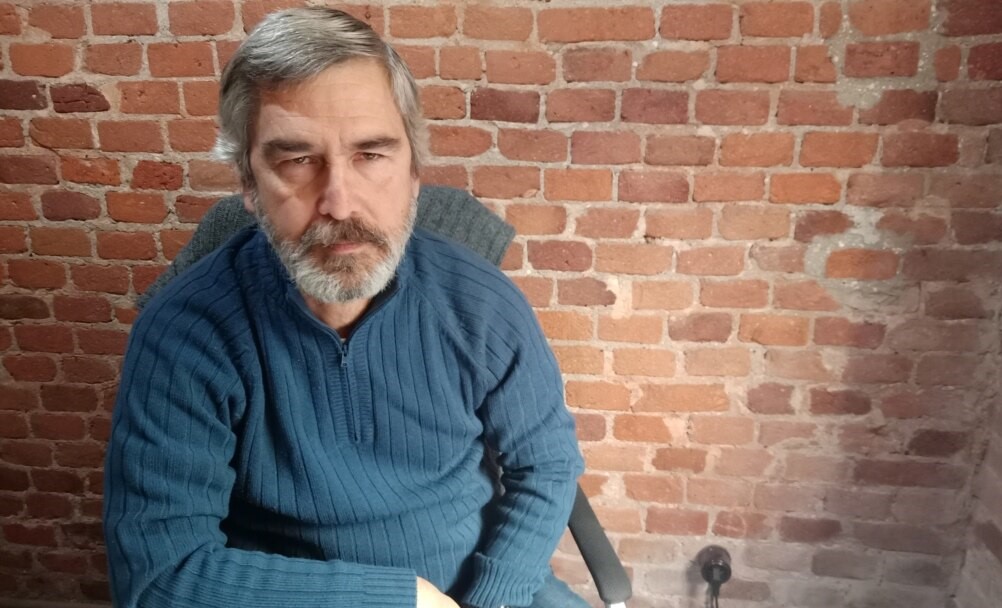Proportional representation elections and an iron fence — what will this Georgian parliament be remembered for
The ninth parliament of Georgia conducted its last plenary session on September 30 — according to the regulation, parliament must stop plenary sessions a month before the elections.
Parliamentary elections in Georgia will take place on October 31. Georgia will choose a new, tenth parliament.
•All you need to know about the critical upcoming parliamentary elections in Georgia
•What’s at stake in the upcoming Georgian elections?
JAMnews asked politicians, experts, and NGO representatives to recall main achievements and failures of the ninth parliament.
Gavrilov’s speech
All JAMnews experts unanimously say in their interviews — the main thing that the ninth convocation will be remembered for is a speech delivered by the Russian member of parliament Sergey Gavrilov while sitting in the chair of the chairman on the Parliament of Georgia. Gavrilov came to Georgia to participate in Interparliamentary Assembly on Orthodoxy forum on June 20, 2019. His speech in the parliament provoked protests many thousands strong that police broke up with force.
The chairman of the Parliament Irakli Kobakhidze resigned, his place was taken by Archil Talakvadze. Protests which started on that day lasted for over six months.
Transfer to almost proportional representation elections
After the so-called ‘night of Gavrilov’, oligarch, former Prime Minister and, as it is common to believe, underground ruler of the country, Bidzina Ivanishvili personally promised protest participants to change the voting system and transfer it to a proportional system. However Ivanishvili didn’t keep his word — his loyal members of parliament defeated the draft law that was presented for voting in November 2019. Nobody had any doubts that it was Ivanishvili’s personal order.
After that protests recommenced, parliamentary opposition started a boycott and joined the street actions.
November actions in front of the parliament
Opposition joined forces around the demand to change the election system and with the mediation of international actors (US Embassy and others) began a negotiation process with the authorities. Only after the street actions and inclusion of international participants into the negotiation process, an agreement was drafted on March 8, according to which the 2020 elections would be conducted based on a new, almost completely proportional model.
•Important electoral reform in Georgia – constitutional amendments pass second reading
•Why the proportional electoral system is so important for Georgia
Appointment of perpetual judges and judicial reform
Discussion of a draft law on common law courts in the beginning of 2019 not only ensued opposition’s critique towards the ruling Georgian Dream but also caused a split in the ruling team itself. Up to ten members left the Dream.
Notwithstanding the public protest, in December 2019 the parliament appointed 14 perpetual judges of the Supreme Court. The reason for protests was the reputation of said judges.
Suspension of MP credentials for Nika Melia
Eighty-eight “for” and zero “against” — this is how the parliament of Georgia suspended MP credentials of the member of the United National Movement fraction, Nika Melia. The issue was presented for voting after Tbilisi City Court returned Melia guilty for 2011 case on bankruptcy of Cartu Bank owned by Bidzina Ivanishvili.
Kutaisi is no longer a parliamentary city
Since January 2019 the parliament is officially no longer located in Kutaisi. After six years of work in Kutaisi, the legislative body was again fully returned to Tbilisi in 2019.
New Labour Code
Most experts consider the changes in the labour code as achievements.
Chief changes: fathers can take paternity leave; a one-time unpaid internship is limited to three months; men and women must receive equal pay for the same job; law forbids verbal labour contracts — it is obligatory to sign an agreement.
Gender quoting
Election code of Georgia underwent changes that imply gender quotation. According to the changes, parties participating in the elections must present their party lists to the Central Election Commission, with each forth candidate being a woman.
Otherwise CEC will not approve the list, and the party won’t be able to participate in the elections.
•Gender quotas in Georgia. The arguments of supporters and opponents
Gender quoting will stay in force in Georgia until 2028.
Law on sexual harassment
Until now Georgian legislation didn’t include a term of “sexual harassment”. The ninth parliament adopted a law on sexual harassment.
Marriage as a union of a man and a woman
Notwithstanding the protests of the opposition and civil society, the constitution now includes a clarification of marriage, as per the initiative of the authorities. Now the constitution states that marriage is “a union of a man and a woman with the aim to create a family”.
•The Constitution of the “Georgian Dream” party
Human rights activists consider that this interpretation will facilitate homophobia, growth of crimes of hate and limit of freedom of expression for representatives of LGBT groups. It is also discriminatory, since a person outside of wedlock and his or her child will not be considered a family.
Temporary commission on the murder on Khorava street case
Another activity of the ninth parliament to be mentioned is the work of the temporary investigation commission, established for the murder on Khorava street case, where the representatives of the parliamentary minority were represented in the majority.
Father of one other teenager killed in Georgia under suspicious circumstances, Malkhaz Machakalishvili, also pushed to establish an investigation commission, but the ninth parliament didn’t satisfy his request.
Other results of the work of the ninth parliament were granting the Public Broadcaster the right to broadcast commercial advertisement alongside with private companies; reinstatement of the Chief Prosecutor Irakli Shotadze who left this position due to civil protests; child code; adoption of the cumulative pension reform, etc.
And last but not least
The parliament of the ninth convocation was the first parliament in the history of Georgia surrounded by a metal fence to protect itself from the public protests.
•‘Berlin Wall’ in downtown Tbilisi? – police erect metal fences around parliament building
Evaluations: “Implicitly obedient parliament”
Member of parliament from European Georgia, Elene Khoshtaria, says that it was an implicitly obedient parliament.
“The ninth parliament was notorious for several “disgraces”: judge appointment process, reinstatement of Shotadze, Gavrilov, failure of the proportional system”, says Khoshtaria.
Chairman of the National Movement fraction, Roman Gotsiridze, also assesses the parliament as a “team of obedient people”.
Gotsiridze says that the symbols of this parliament are the lari exchange rate and Gavrilov.
“Four years ago the exchange rate of lari to dollar was 2.3, today it is 3.3. In four years this government stole from people one lari in every two, drove the population to poverty. The second symbol of this parliament is Gavrilov… This parliament that appointed dishonest judges. The parliament that had legal registration of Bidzina Ivanishvili’s tasks and pressing the button as its function. We must hope that there will be no other parliament like this in history of Georgia again”, said Gotsiridze.
The ninth parliament was one of the worst in history of Georgia and fell behind all other parliaments in action and adoption of important decisions, said political commentator of JAMnews David Zurabishvili:
“The only parliament worse than this was the 2008-2012 parliament where the majority was solid and only had to press the button, while the opposition was weak and unqualified”.
“This was the weakest parliament of all. This is a model of what a parliament shouldn’t be like in a parliamentary country”. This is how independent member of parliament Eka Beselia assesses the work of the ninth parliament.
She says that in the beginning of its activities, this parliament had a chance to conduct the main judicial reform but “the ruling party turned the parliament into its main bearing in the deal with the clan”.
The fact how rarely representatives of the government reported to the members of the parliament also speaks to the weakness of the ninth parliament, says head of the Democracy Index, Ekaterina Tsimakuridze:
“Opposition had summoned the ministers numerous times, however they didn’t show up in the parliament which speaks about a weak controlling function of the parliament”, says Tsimakuridze.
At the same time she mentioned that notwithstanding numerous problems and overall weakness, the parliament managed to adopt several laws which in case of correct implementation will promote Georgia’s convergence with Europe.
Among main achievements, Tsimakuridze names simplification of land registration process, child rights code, labour code, and proportional elections system.
The parliament had problems with performing the supervision function, says head of the good governance and human rights direction of IDFI, Ketevan Kukava.
Kukava names the fourth wave of judicial reform as the achievement of the legislative body, and says that in fact, it reflects recommendations of non-governmental organizations.
“However notwithstanding certain positive changes within the “fourth wave”, the judicial system still contains fundamental challenges and drawbacks”, says Kukava.
Activities of the ninth parliament didn’t differ much from the work of the previous parliament, said the representative of “International Transparency — Georgia” Lika Sajaia in her conversation with JAMnews.
Sajaia names “Gavrilov’s night” and the judicial reform among the negative consequences of the work of the ninth parliament.
“Even though the judicial reform was presented in several waves, we saw the election process of Supreme Court judges. We didn’t receive a really independent court, which is a problem not only for the ninth parliament but for the entire country”, says Lika Sajaia.
Among positive tendencies she singles out adoption of the new parliamentary regulation that should make the work of the legislative body more efficient and transparent.



















